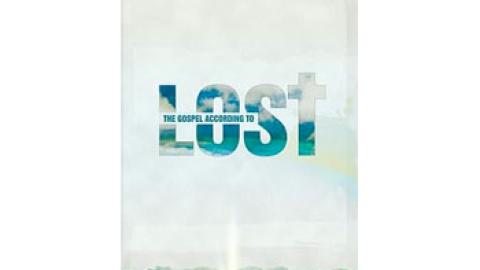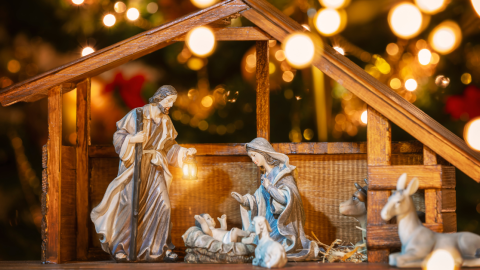
The Gospel According to LOST: Book Review
First let me say that for years, I successfully avoided ABC’s LOST. I didn’t know much about the show, but I knew the plot was too complicated to jump in the middle of the series. However, recently, I was kidnapped by friends and forced to watch the first three episodes on DVD. From the very first show, I was hooked. In two months, through countless marathons, I watched seasons 1 through 5. The day after I finished the season 5 finale, a copy of The Gospel According to LOST was mysteriously sitting outside of my office. I took it as a sign from the Island (kidding, of course).
The Gospel According to LOST is a gift for every Christian or spiritually aware fan of the show who sees more than just a story about good-looking castaways. Author Chris Seay breaks down all of the main characters and themes surrounding them in light of the redemptive Good News. As the pastor of Ecclesia Church in Houston, Texas, he has a narrative history of uncovering God in pop culture with titles under his name such as The Gospel According to Tony Soprano, The Gospel Reloaded (re: The Matrix), and here again with The Gospel According to LOST.
In the book, Seay discusses such warring concepts inside of the series as science vs. faith, father-child relationships, and the often interchangeable and occasionally indistinguishable roles of good and evil. Readers will dig deep into the saving grace of Desmond’s and Penny’s romance as well as Hurley’s supposed curse with the numbers. Seay also gets specific. He manages to decode the scripture verses on Mr. Ecko’s “Jesus Stick”, something my friends and I tried unsuccessfully to do. I had many revelations about the relationship between Jin and Sun, and Seay’s view of Locke as a Christ- and/or Moses-figure is very thought-provoking.
Since LOST fans are notorious for developing theories, it’s good to mention that The Gospel by no means serves as just another set of ideas like you would find on “Lostpedia” or other such Web sites. There are no spoilers for the final season. However, it thoroughly discusses the first five. Thus, this isn’t a book for people who haven’t reached that point yet.
Seay’s writing style takes a relaxed, conversational tone, and it feels as though he’s in the room with you, excitedly dissecting the most recent episode. Think of authors such as Rob Bell and Donald Miller, and you’ve got the right idea.
I found myself rolling my eyes once when Seay reminds us of the red-blooded American male’s take on LOST and goes on for a page and a half about the enchanting beauty of Kate Austen. She’s pretty. We get it. That aside, every other perception of the series through the eyes of the Bible was right on point. Generously using scripture, Seay shows how Christ’s parables and the overall theme of redemption are interwoven into the storylines – so much so that it makes you wonder if a seminary student is on the show’s writing team.
The only true flaw I see in this book is that Seay might have jumped the gun. LOST is a show of plot twists and mysteries. If the first five seasons are any indication of the sixth, we all may be in for a few surprises, and some of his ideas may fall flat when the series final season starts airing tomorrow night. However, Seay has anchored much of his message on the real Gospel, and that is a story that will never grow old.



